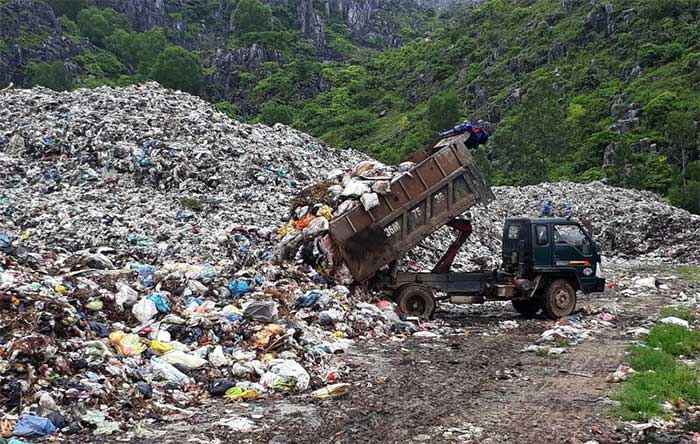Research Shows Landfills Are Major Contributors to Climate Change More Than We Thought.
According to researchers, waste buried for decades is currently emitting tons of methane into the atmosphere, contributing to global temperature rise and leading to various issues caused by climate change.
This isn’t necessarily a shocking discovery. It has long been known that open landfills are a “perfect” place for methane to rise from decaying vegetables, household items, and other organic waste.
However, new research indicates that methane emissions from these landfills are three times higher than previous reports, based on measurements from 1,200 landfills across the United States.

Higher than expected methane emissions are contributing to a greater increase in global temperatures. (Illustrative image).
While methane exists in the atmosphere for a shorter duration than carbon dioxide, its warming potential is 80 times greater than that of carbon dioxide over a 20-year period. This is a significant issue because landfills continuously release methane into the atmosphere.
The U.S. Environmental Protection Agency estimates that landfills are the third-largest source of human-caused methane emissions, with greenhouse gas emissions equivalent to 23 million gasoline-powered cars over the course of a year.
However, these estimates may not be entirely accurate as the study also utilized computer models, not just measurements from landfills.
Due to the dangers of direct exposure to methane emissions at landfills, this research primarily used data collected by aircraft and spectrometers flying over the landfills.
With hotspots detected at all landfills and significant methane flows persisting for months or years, emissions are likely higher than the results indicated by computer models.
Even some landfills equipped with pipelines to recover methane for reuse in electricity and heat generation can still leak, releasing some methane back into the atmosphere.
Of course, there are numerous ways to reduce methane emissions from landfills, one of which is source separation of waste, eliminating materials that could produce methane during decomposition.


















































